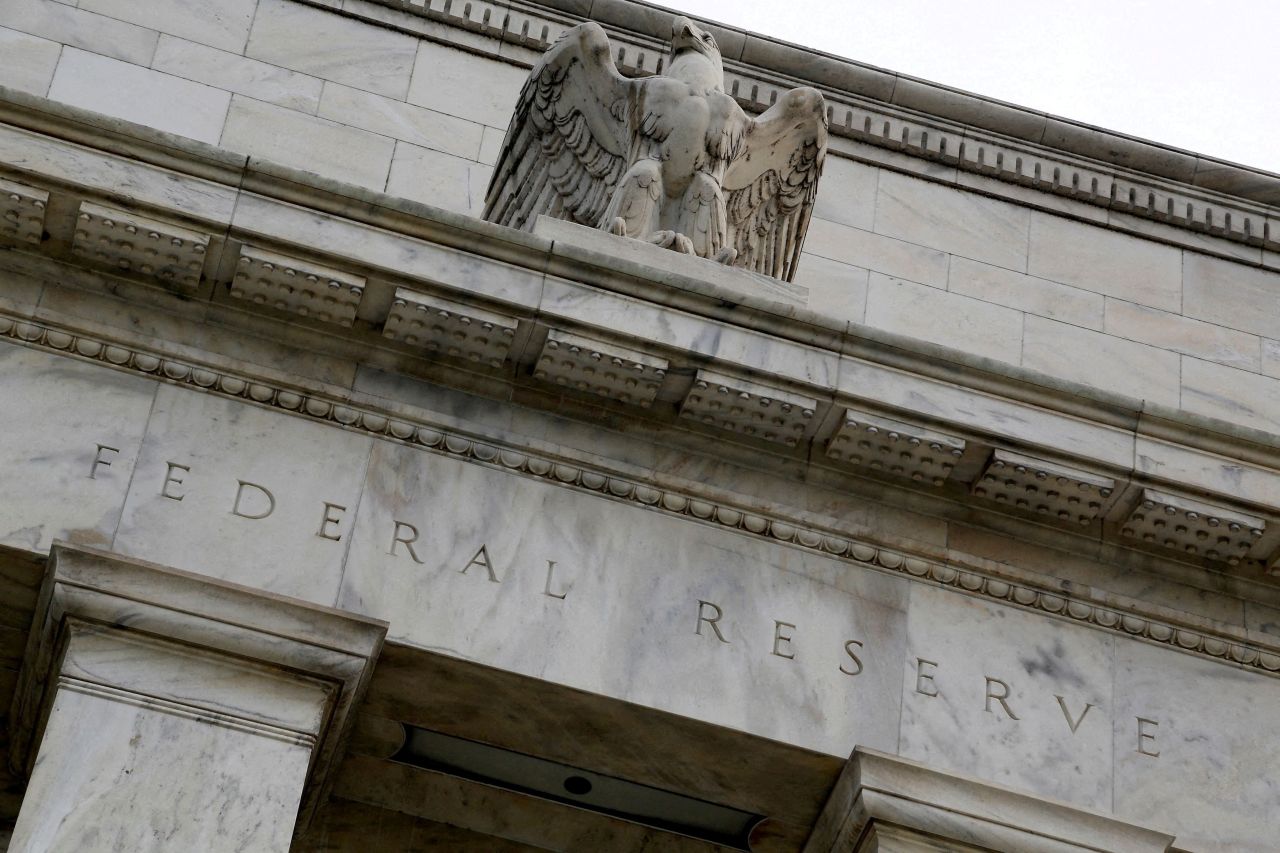 |
An eagle tops the US Federal Reserve building`s facade in Washington, July 31, 2013. (Reuters) |
Ahead of the scheduled South Korea-US summit next week, some lawmakers and experts have been calling for a revival of the bilateral currency swap as a countermeasure to the growing signs of a weakening won, reports said Monday.
South Korean market was rattled on Friday when its local currency hit its lowest point in over two years, trading at 1,272.7 won against the US greenback at around 3:30 p.m. It eclipsed the previous low of 1,285.7 won against the US dollar reached in March 19, 2020 when the COVID-19 outbreak dealt a blow to the market.
The won further lost ground on Monday and was trading at 1,275 won against the dollar at one point. Lingering risks stemming from the US Federal Reserve’s decision to carry out its biggest rate hike in two decades -– of half a percentage point -- with hints of more “big step” rate moves to come, continued to weigh down on the market.
After the won-dollar exchange rate became more volatile, Rep. Sung Il-jong of the main opposition People Power Party expressed his hopes that the subject of the Korea-US currency swap agreement would be “positively discussed” at the scheduled May 21 meeting between incoming President Yoon Suk-yeol and US President Joe Biden, at a party meeting on Friday.
Korea’s latest $60 billion currency swap deal with the US expired in December, as Asia’s fourth-largest economy showed stable recovery from the pandemic, backed by a strong rebound in exports and improved liquidity. The Bank of Korea and the US Fed signed the deal in March 2020 to funnel dollar liquidity into the Korean market to cushion the economy from pandemic woes. It had since extended the contract three times before expiration.
In line with Sung’s remarks, Rep. Choo Kyung-ho, the nation’s finance minister nominee said that signing a currency swap with the US, “a country that holds a reserve currency,” will contribute to stabilization of Korea’s forex and financial markets, at a parliamentary confirmation hearing held earlier this month. Such matter must be reviewed with the country with the reserve currency, Choo added.
Ahn Dong-hyun, an economics professor at Seoul National University expressed concerns that the US Fed’s rate hike would lead to a prolonged strong dollar trend, which in turn could increase the risks of default for developing nations.
“While there is a low chance that Korea would repeat a major financial crisis like the 1997 Asian financial crisis, it needs to prepare measures that could shield it from the worst case scenario,” Ahn said, referring to the bilateral currency swap.
However, despite reports that the Ministry of Economy and Finance is reviewing the scenario to revive the currency swap deal with the US, skeptics say that it is unnecessary to demand such partnership at the moment.
“The past currency swap deals have stabilized the exchange rate, but it has alleviated risks, not the actual exchange rate,” Choi Woo-jin, an analyst at Korea Development Institute said.
“This is not the time for the currency swap, especially when compared with past crises, when the deals were inked.”
The 2020 currency swap deal marked the second of its kind signed with the US following a won-dollar swap line signed in October 2008, which apparently eased concerns tied to foreign currency crunch during the global financial crisis.
By Jung Min-kyung (
mkjung@heraldcorp.com)








